HCoC: Opportunities and challenges for the Democratic Republic of Congo
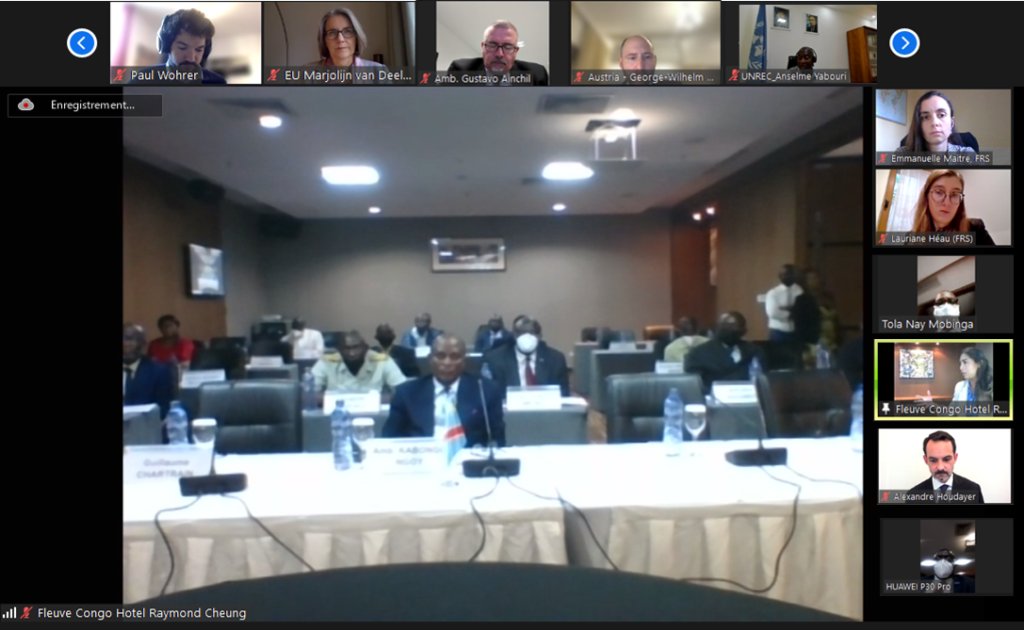
On 23 November 2021, the FRS and representatives from the government of the Democratic Republic of Congo discussed over ballistic missile proliferation and the role of the Hague Code of Conduct. This event took the form of a hybrid event with representatives of RDC gathering in Kinshasa and experts from FRS, the EU, the Argentinian Chair, Austria and UNREC presenting virtually.
The HCoC and Southeast Asian States

Only three out of ten Southeast Asian states have joined the HCoC to date (the Philippines, Cambodia and Singapore). This limited rate is noteworthy as Southeast Asia is increasingly concerned by the ongoing ballistic missile competition in broader Asia. Moreover, the region is actively investing to benefit from space technologies.
The HCoC and China

China is currently the main ballistic missile possessor and spacefaring nation which remains outside the Hague Code of Conduct against Ballistic Missile Proliferation (HCoC). This can be explained by China’s traditional opacity regarding its deployment of strategic missiles, but also its exports of ballistic systems or technologies abroad. This absence is nonetheless problematic for a regime based on voluntary transparency and confidence-building which aims at universality.
Exploring the role of HCoC and other CBMs in the field of missiles

This virtual Side Event was organised on 13 October 2021 on the Margins of the UNGA First Committee.
Non-binding norms and Transparency and Confidence-Building Measures

This panel was part of the UNIDIR 2021 Space Security Conference, which took place from 27 to 28 September at the Palais des Nations in Geneva.
The HCoC and Space
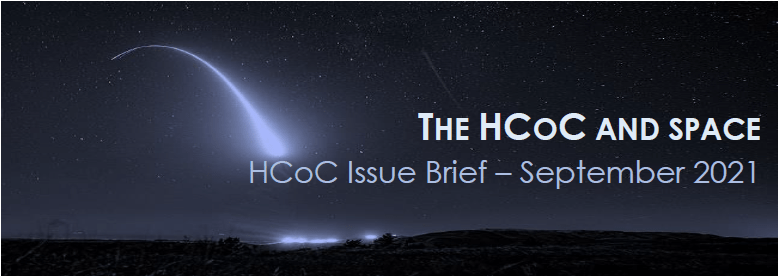
The New Space trend – an ongoing innovative transformation of the space sector – has led to a rise of investment in small launch systems. While an increasing number of nations are gaining access to space, the number of private sector entities investing in this domain is also rising. Meanwhile, small space launch vehicles and ballistic missiles rely on increasingly similar technologies.
Confidence-building measures and new missile technologies

HCoC members states met for the 20th Annual Regular Meeting in Vienna on 7-8 July 2021. The FRS organised a virtual-side event on 6 July 2021, dedicated to participants to the meeting but also open to any states, experts, researchers or representatives from the industry.
African states and The Hague Code of Conduct against Ballistic Missile Proliferation

Four of the five most recent subscribing states to The Hague Code of Conduct against Ballistic Missile Proliferation (HCoC) are African. Adopted in November 2002 in The Hague, the HCoC’s chief objective is to curb the proliferation of ballistic missiles capable of delivering nuclear, chemical or biological weapons, as well as related technology.
The Hague Code of Conduct and the Caribbean

Caribbean states have regularly joined the HCoC since its adoption in 2002, showing a steady interest in the Code. But despite this, the current level of subscription remains low, with half of the 16 Caribbean states having signed it.
Virtual seminar dedicated to CARICOM countries

A new virtual event was held on 8 June 2021 to engage on the Hague Code of Conduct with delegations from 8 Caribbean nations.
Argentina takes over HCoC chairmanship for 2021-2022

On July 7-8, Switzerland officially handed over the Chairmanship of The Hague Code of Conduct to Argentina during the 20th Annual Regular Meeting of subscribing states in Vienna. The meeting was an opportunity to recall the work done during the Swiss Chairmanship and to announce the objectives of the incoming Argentinian Chairmanship, including the organisation of a meeting marking the 20th anniversary of the Code.
The HCoC and Latin America
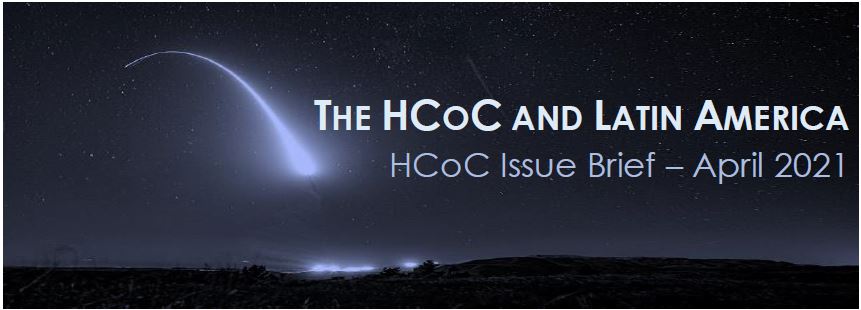
Latin America is one of the regions with the highest level of support for the HCoC. This support reflects the historic commitment of the region in favour of disarmament and non-proliferation. The remaining four non-subscribing states – Bolivia, Brazil, Cuba and Mexico – have voiced concerns about the adoption of the Code outside the United Nations framework and its limited scope.
Virtual seminar dedicated to Latin American countries
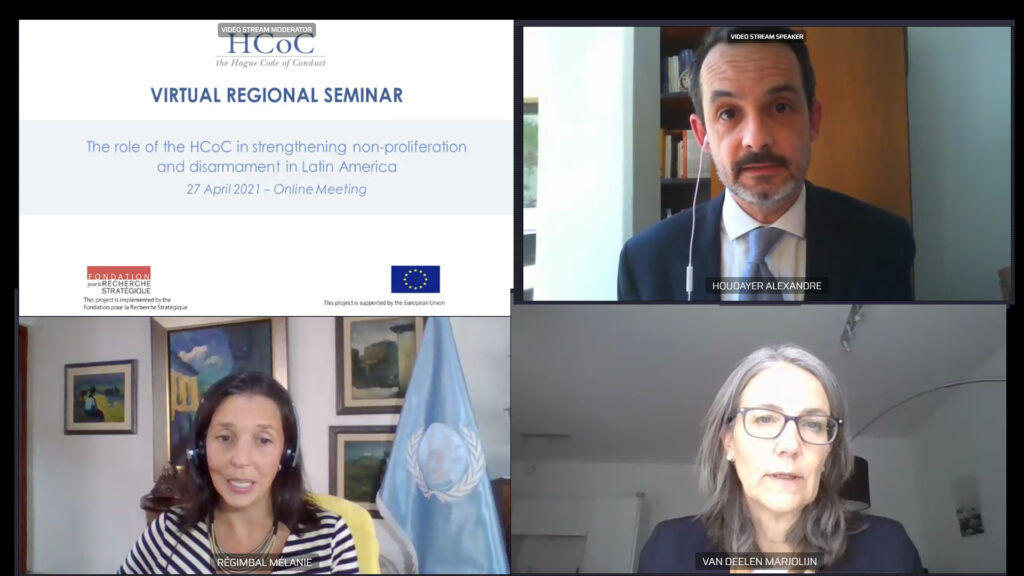
On 27 April 2021, the FRS organised a virtual seminar in Spanish and Portuguese dedicated to Latin American countries. Around 95 experts and diplomats participated to this event, representing a dozen of countries.
Le Code de conduite de La Haye : quelle transparence pour les biens à double usage ?

The Hague Code of Conduct (HCoC) was adopted in 2002 with a view to reducing the proliferation of ballistic missiles that can be used to carry weapons of mass destruction (WMD). From its inception, it took into account not only ballistic missiles – then the main vectors of ADM – but also space launchers, the two technologies sharing many characteristics.
Virtual seminar dedicated to French-speaking countries
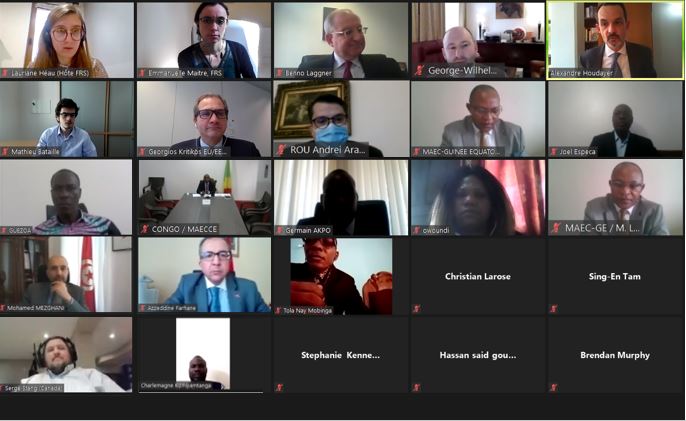
On March 31, 2021, the FRS organized a virtual seminar in French for member states of La Francophonie. About 40 diplomats and experts attended the event, representing 20 countries.
The HCoC and South Asia
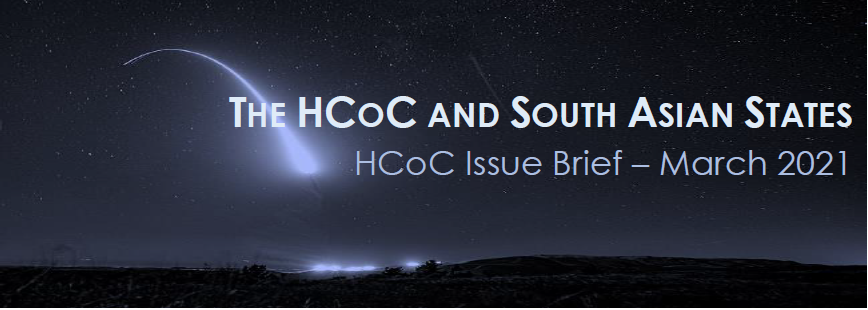
India’s and Pakistan’s ballistic missiles are mostly designed as delivery vehicles for their nuclear weapons. While intrinsically linked to their national security, ballistic missiles also have regional security implications for South Asia. Non-proliferation and arms control efforts have so far been aimed at the bilateral level. Subscription to other instruments including the HCoC remains low in the region, although India joined the HCoC in 2016.
Expert Mission on the HCoC with the Republic of South Sudan

On 10 December 2020, the FRS and representatives from the government of South Sudan discussed over ballistic missile proliferation and the role of the Hague Code of Conduct. This event took the form of a hybrid event with representatives of South Sudan gathering in Juba and experts from FRS, the EU, the Swiss Chair, Austria and the ISS-Africa presenting virtually.
A Tribute to Michael Elleman

The HCoC Project Team wishes to pay tribute to Michael Elleman, who passed away on February 20th 2021, and extend their condolences to his family. Mr Michael Elleman recurrently intervened within the framework of the HCoC Project’s seminars and missions in order to promote the Hague Code of Conduct in multilateral fora, and readily provided support […]
A Tribute to Michael Elleman
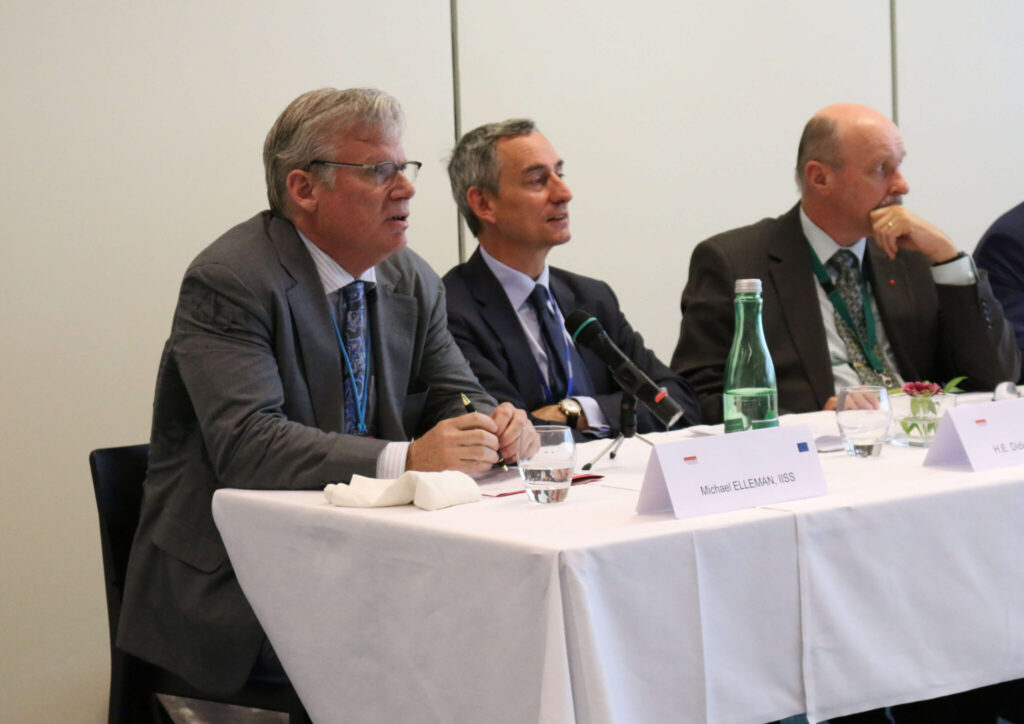
The HCoC Project Team wishes to pay tribute to Michael Elleman, who passed away on 20 February 2021, and extend their condolences to his family.
A multilateral response to ballistic proliferation

The FRS organised on 14 January 2021 a webinar with the support of the EU dedicated to the integration of the HCoC within multilateral mechanism and further avenues to curb ballistic proliferation.

